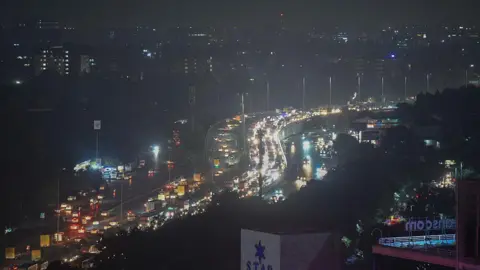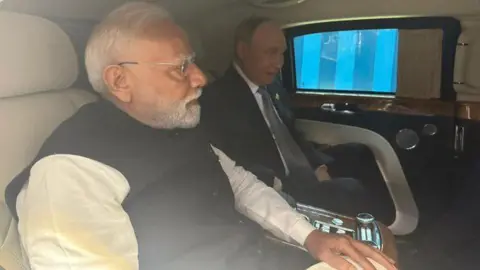The government in Gujarat has demolished around 2,000 homes in a settlement, claiming it was illegally occupied by Bangladeshi nationals. This action, however, is part of a broader pattern of backlash against Muslim communities following a deadly attack in Kashmir that left 26 people dead, predominantly Hindu tourists.
The attack has fueled a surge of anti-Muslim sentiment, with thousands of Muslims detained and widespread destruction of homes attributed to alleged terrorist ties. Prime Minister Narendra Modi has vowed to retaliate against Pakistan, accusing it of harboring militants responsible for the assault, a claim that Pakistan disputes.
The situation has prompted heightened security measures in Kashmir, with reports of hundreds arrested and homes demolished under allegations of terrorism. This escalating violence against Muslims, particularly in states like Uttar Pradesh and Karnataka, has raised alarms among human rights advocates who warn of hate crimes and a deliberate campaign against Muslim communities, furthering a narrative of animosity propagated by Modi's administration.
Meanwhile, over 80,000 Afghan migrants who had lived in Pakistan are facing expulsion, a decision fueled by political tensions and complicating the region's humanitarian landscape. The unfolding events are drawing critical attention as analysts observe the potential long-term impact on communal relations in India and its geopolitical stance in the region.
The attack has fueled a surge of anti-Muslim sentiment, with thousands of Muslims detained and widespread destruction of homes attributed to alleged terrorist ties. Prime Minister Narendra Modi has vowed to retaliate against Pakistan, accusing it of harboring militants responsible for the assault, a claim that Pakistan disputes.
The situation has prompted heightened security measures in Kashmir, with reports of hundreds arrested and homes demolished under allegations of terrorism. This escalating violence against Muslims, particularly in states like Uttar Pradesh and Karnataka, has raised alarms among human rights advocates who warn of hate crimes and a deliberate campaign against Muslim communities, furthering a narrative of animosity propagated by Modi's administration.
Meanwhile, over 80,000 Afghan migrants who had lived in Pakistan are facing expulsion, a decision fueled by political tensions and complicating the region's humanitarian landscape. The unfolding events are drawing critical attention as analysts observe the potential long-term impact on communal relations in India and its geopolitical stance in the region.



















